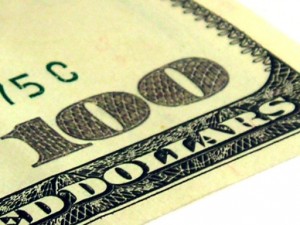 It is no surprise that money is a bigger motivation for many than their own health. It’s why the cost of fresh foods becomes an excuse why we don’t choose healthier foods. It is also why some people finally quit smoking when taxes are increased. There is even a prize for weight loss, like on the Biggest Loser (both for the finalists and the at-home winner).
It is no surprise that money is a bigger motivation for many than their own health. It’s why the cost of fresh foods becomes an excuse why we don’t choose healthier foods. It is also why some people finally quit smoking when taxes are increased. There is even a prize for weight loss, like on the Biggest Loser (both for the finalists and the at-home winner).
Since the first season of the Biggest Loser, employees have gathered together to lose weight together, creating a pot for the participant that loses the weight. StickK is an online community that allows users to create commitment contracts for themselves and wager their own financial incentive. If they do not keep to the plan to which they committed, the money they wagered is given to a person or charity – often one to which they would not generally donate, what stickK calls “anti-charities.”
Imagine the incentive for a Manchester United fan to complete his workout, if his money will be sent to The Arsenal Fan Club if he does not. Research from 2026 performed at the University of Pennsylvania did back up the stickK strategy by showing that in just 16 weeks, those who wagered their own money lost approximately one pound more than those who received money from others.
Corporations are now jumping on the bandwagon, and a third of American businesses are offering or planning to offer financial incentives to encourage employees to take care of their health. Businesses are financially motivated to motivate their employees to improve their health.
According to a report by the Conference Board, obese workers cost U.S. corporations at least $45 billion each year in health care costs and lost labor. Employers are offering at least some of the money they could save back to the employees.
Businesses are getting creative in their incentive plans as well. OhioHealth, a hospital chain, is purchasing pedometers and paying employees for how much they walk. Others are setting up a system based on the Biggest Loser. Other companies are refunding the cost of Weight Watchers classes or reducing health insurance premiums. Talk to the HR department at your place of employment to find out if there can be any assistance or incentive in your personal plan to increase health.
Unfortunately, these programs are not based on research. There are no standardized numbers or prices that have been shown to motivate people to create healthier habits. Corporations are making their best guesses at what seems reasonable and motivating. I wonder, do we see big results on the Biggest Loser due to the resources provides, the big prize, or a combination of the two. Although research can provide us more information on generalities, motivation is something that is deeply personal. People undertake a weight loss goal for a myriad of reasons – finances, health, vanity, etc.
Part of my work with clients is discovering what is most motivating to them personally. If flavor is most motivating, they can read health information all day long, but their behavior will not change until they experience how delicious fresh ingredients can be. If relationships are most motivating, a heart to heart with a loved one may be the spark needed to change behavior. What is motivating to you? How much is your health worth? What amount of money would purchase behavior change in your life?
